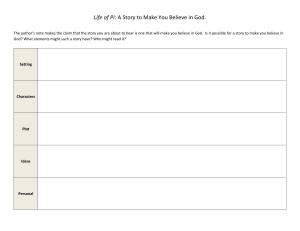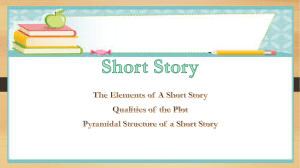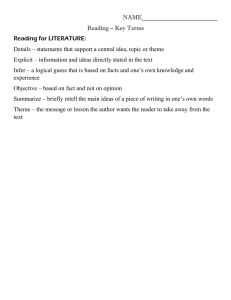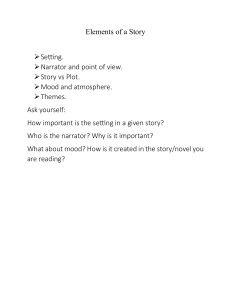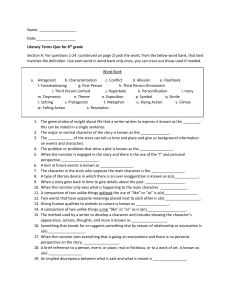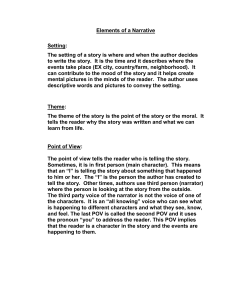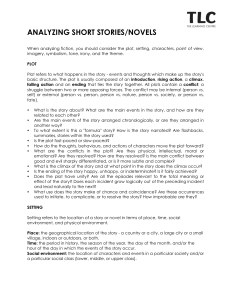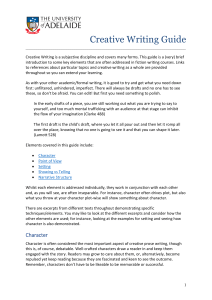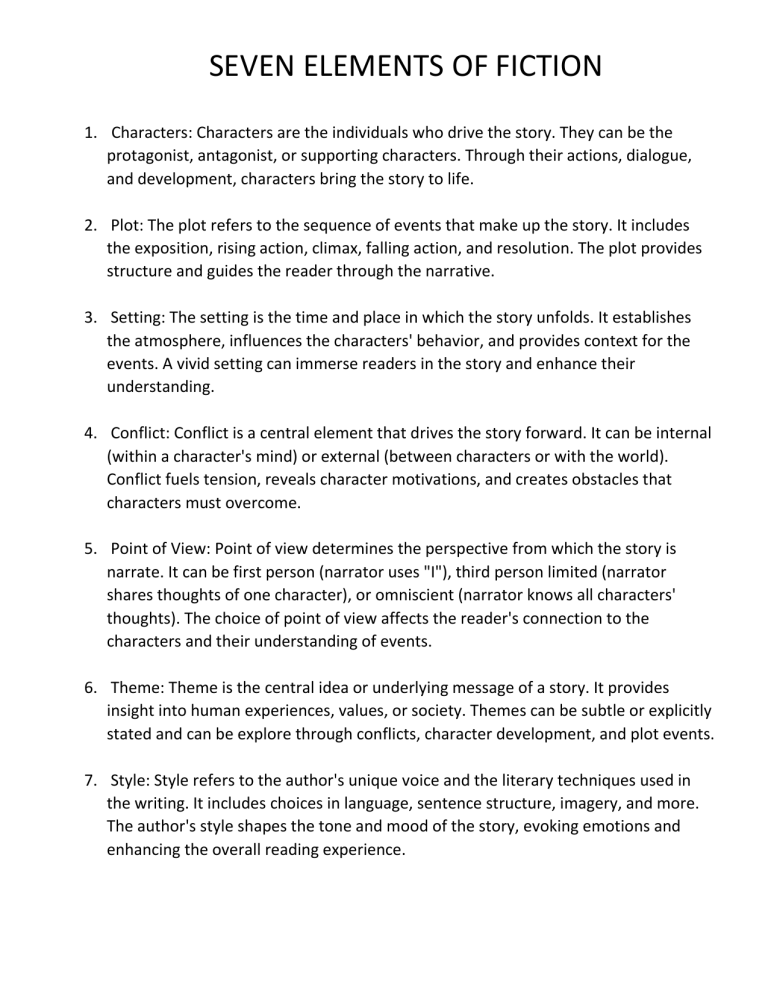
SEVEN ELEMENTS OF FICTION 1. Characters: Characters are the individuals who drive the story. They can be the protagonist, antagonist, or supporting characters. Through their actions, dialogue, and development, characters bring the story to life. 2. Plot: The plot refers to the sequence of events that make up the story. It includes the exposition, rising action, climax, falling action, and resolution. The plot provides structure and guides the reader through the narrative. 3. Setting: The setting is the time and place in which the story unfolds. It establishes the atmosphere, influences the characters' behavior, and provides context for the events. A vivid setting can immerse readers in the story and enhance their understanding. 4. Conflict: Conflict is a central element that drives the story forward. It can be internal (within a character's mind) or external (between characters or with the world). Conflict fuels tension, reveals character motivations, and creates obstacles that characters must overcome. 5. Point of View: Point of view determines the perspective from which the story is narrate. It can be first person (narrator uses "I"), third person limited (narrator shares thoughts of one character), or omniscient (narrator knows all characters' thoughts). The choice of point of view affects the reader's connection to the characters and their understanding of events. 6. Theme: Theme is the central idea or underlying message of a story. It provides insight into human experiences, values, or society. Themes can be subtle or explicitly stated and can be explore through conflicts, character development, and plot events. 7. Style: Style refers to the author's unique voice and the literary techniques used in the writing. It includes choices in language, sentence structure, imagery, and more. The author's style shapes the tone and mood of the story, evoking emotions and enhancing the overall reading experience.
